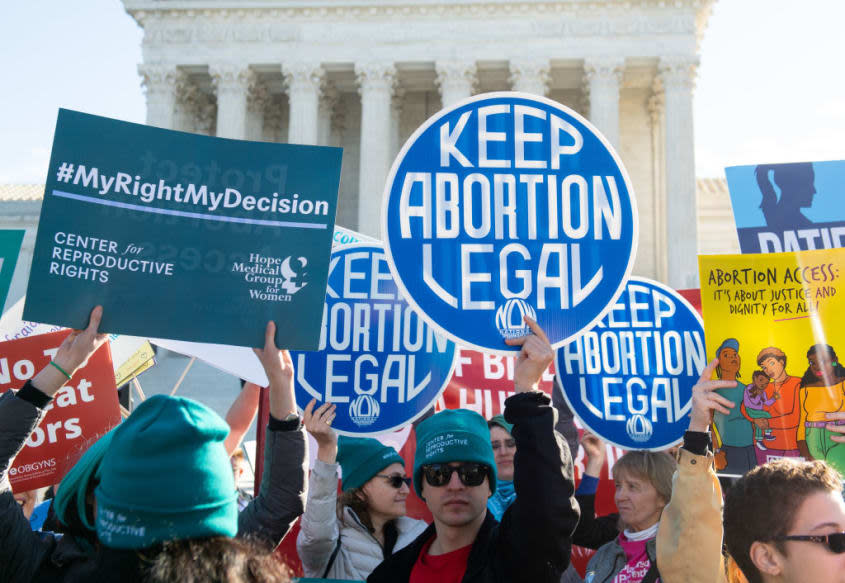Texas' abortion ban is highlighting the 'linguistic divide' between Democrats young and old

As Democrats continue to rip apart and respond to Texas' new, incredibly-restrictive abortion law, one pivotal word is dividing the moderate old guard from the party's young new progressives: "women," reports Politico.
Abortion clinics and young activists "are taking pains to avoid gender-specific words" so as to include transgender men and non-binary individuals in the abortion conversation and "build stronger political coalitions to take on the right," Politico writes. But the older generation of Democrats — both in government and in advocacy groups — have "resisted this shift" for fear of promoting conservative backlash and alienating potential supporters, per Politico. Said one former reproductive rights movement leader: "Is the end goal actually winning, or is it just using the right language at that moment and winning is apparently not a priority?"
But abortion rights is also "a trans issue and a trans experience," noted D. Ojeda, a policy advocate for the National Center for Transgender Equality, and "language matters because it shapes our perceptions of the world and it drives our behaviors towards other people." "In the healthcare context," Ojeda added, "it matters even more."
Unfortunately, however, the "linguistic divide" in the current legal fight has been "baked in for decades," Politico writes. For instance, President Biden, Vice President Harris, and House Speaker Nancy Pelosi all recently addressed the Texas legislation as a threat to "women" specifically; meanwhile, progressives like Reps. Cori Bush (D-Mo.) and Alexandria Ocasio-Cortez (D-N.Y.) have done the opposite. "Roe isn't a 'women's issue,'" Ocasio-Cortez said Wednesday. "Trans, two-spirit, and non-binary people have always existed and will always exist."
This "one-sided language" has "really real consequences for people," said Devin Michelle Bunten, an assistant professor at MIT. "In particular, trans men have really bad experiences with reproductive health care and that sort of erasure of that experience has medical consequences."
You may also like
Is rural America becoming a new Confederacy?
LAPD's mass collection of social media data alarms activists: 'This is like stop and frisk'

